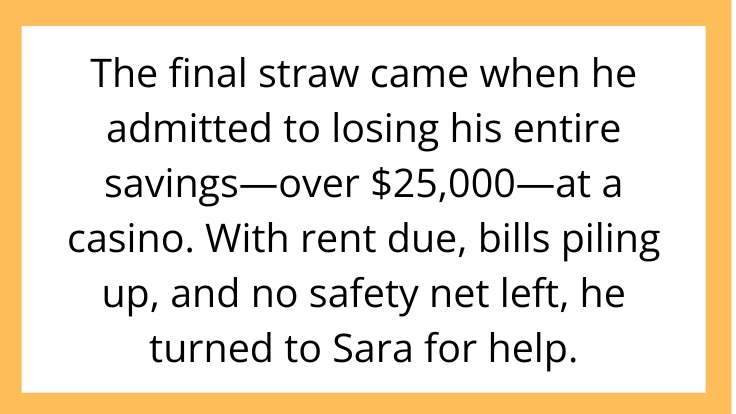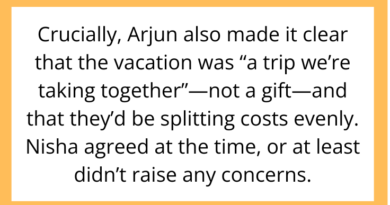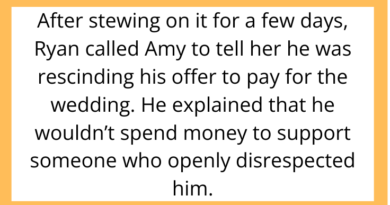AITAH for Refusing to Help My Brother Financially After He Gambled Away His Savings?
Money and family rarely mix well—especially when trust has been broken. In today’s AITAH scenario, we examine a sibling conflict that’s as emotional as it is financial. When someone you love hits rock bottom because of their own choices, how far should your support go?
Let’s dig into the dilemma that’s got Reddit talking.
The Backstory: A Pattern of Bad Decisions

A 28-year-old woman—let’s call her Sara—shared her story on the r/AITAH subreddit. According to Sara, her older brother, 34, has a history of irresponsible financial behavior. Over the past few years, he’s borrowed money from multiple family members and blown it on get-rich-quick schemes, luxury purchases, and, more recently, gambling.
The final straw came when he admitted to losing his entire savings—over $25,000—at a casino. With rent due, bills piling up, and no safety net left, he turned to Sara for help.
He asked her for $5,000 to “get through the month.” But this time, Sara said no.
The Confrontation: “You’re Family—You Should Help”
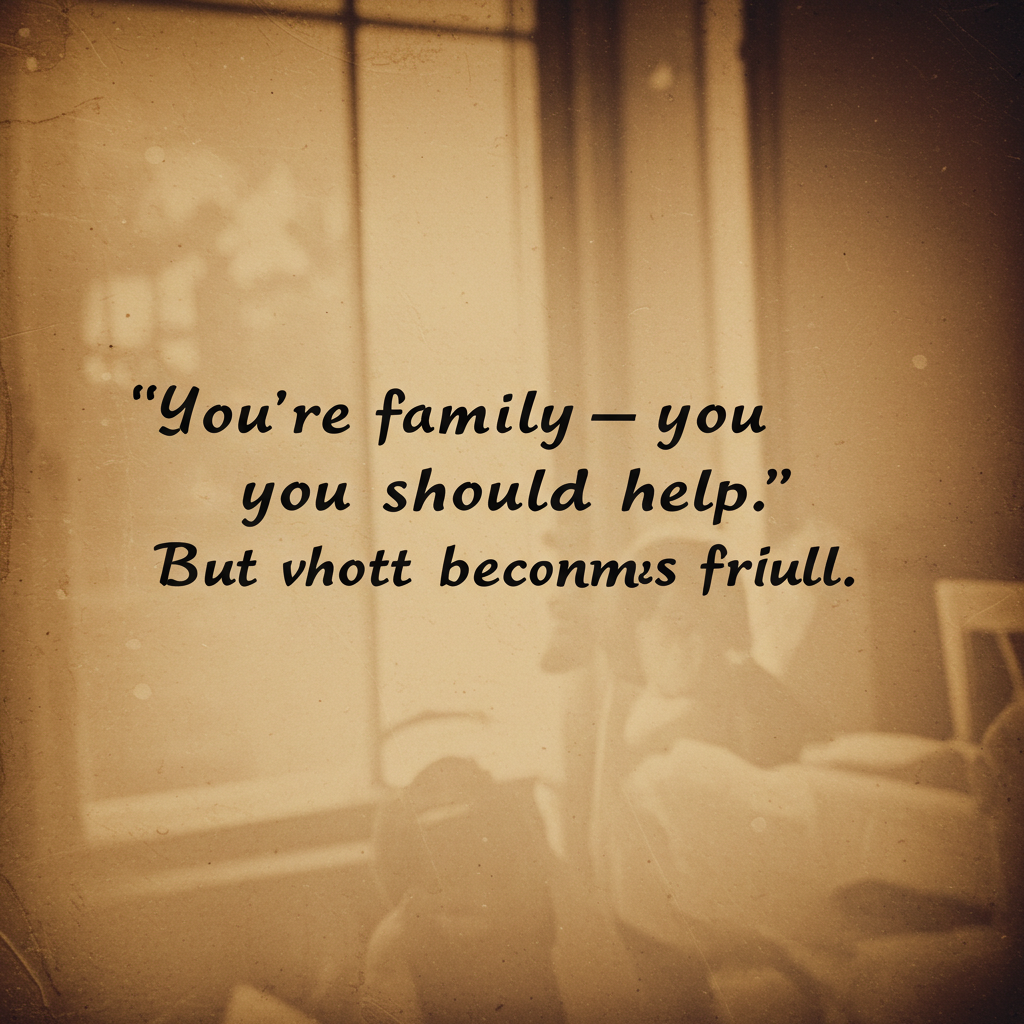
Sara explained to her brother that she’s tired of bailing him out. She reminded him that she’s helped before—multiple times—and that each time, he promised to change. But nothing changed. Now, she’s focusing on saving for her own future: a house, a wedding, maybe even starting a business.
Her brother didn’t take it well.
He accused her of being cold and heartless. He said she was “abandoning family” and claimed he had no one else to turn to. Their parents also chimed in, pressuring Sara to “just help him this once.”
Feeling overwhelmed and guilt-tripped, Sara turned to Reddit to ask: AITAH for refusing to help my brother financially after he gambled away his money?
The Emotional Tightrope: Love vs. Enabling

Sara’s Side: Enough Is Enough
Many people could relate to Sara’s position. She wants to help, but not at the cost of enabling destructive behavior. She’s not cutting him off out of spite—she’s doing it out of self-respect and perhaps even tough love.
Setting boundaries isn’t the same as being selfish. Sara has every right to protect her finances and mental peace, especially when she’s been burned before.
Helping someone repeatedly without accountability isn’t kindness—it’s codependence.
The Brother’s Side: Desperation and Shame
From the brother’s point of view, he’s in crisis. He’s ashamed, broke, and scared. Reaching out to his sister may have felt like the last option—and her refusal, like betrayal.
Yes, his decisions were reckless, but in his eyes, family is supposed to show up when you’re at your lowest.
Reddit Reacts: Harsh Truths and Support
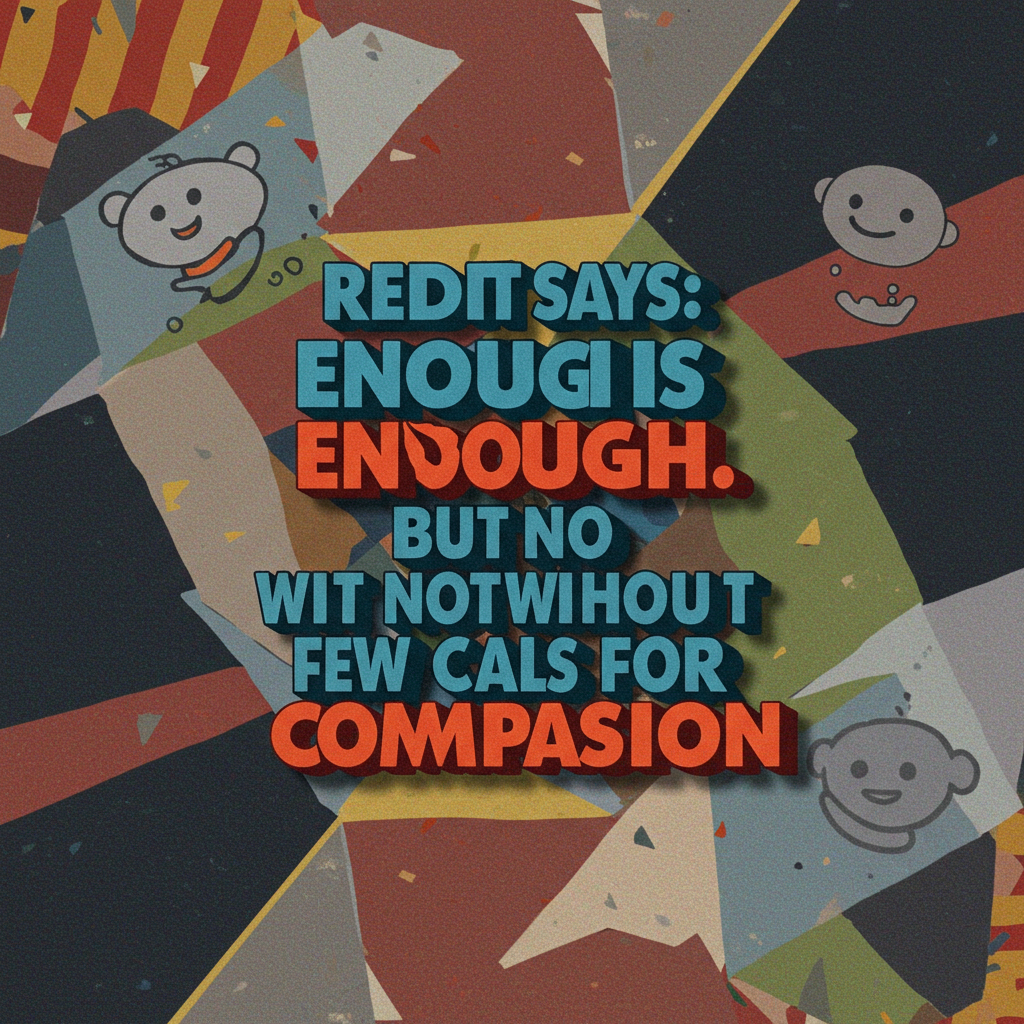
The Reddit community, never shy with opinions, mostly backed Sara.
“Not the villain. He made his bed—let him lie in it,” one user wrote.
Many pointed out that gambling addictions often require professional help, not repeated bailouts. Several even encouraged Sara to suggest therapy or Gamblers Anonymous to her brother instead of money.
But some commenters urged empathy.
“He’s still your brother. Maybe set conditions—like getting help—before offering assistance,” another wrote.
Financial Boundaries: Why They Matter

Setting financial boundaries with family is one of the hardest things to do—especially in cultures where family loyalty is prioritized above all else.
But here’s the thing: boundaries protect relationships. When you keep giving beyond your limits, resentment builds. And resentment can destroy more than a few overdraft fees—it can tear families apart.
Helping should never come at the expense of your own well-being. You can love someone and still say “no.”
What Sara Could Do Instead
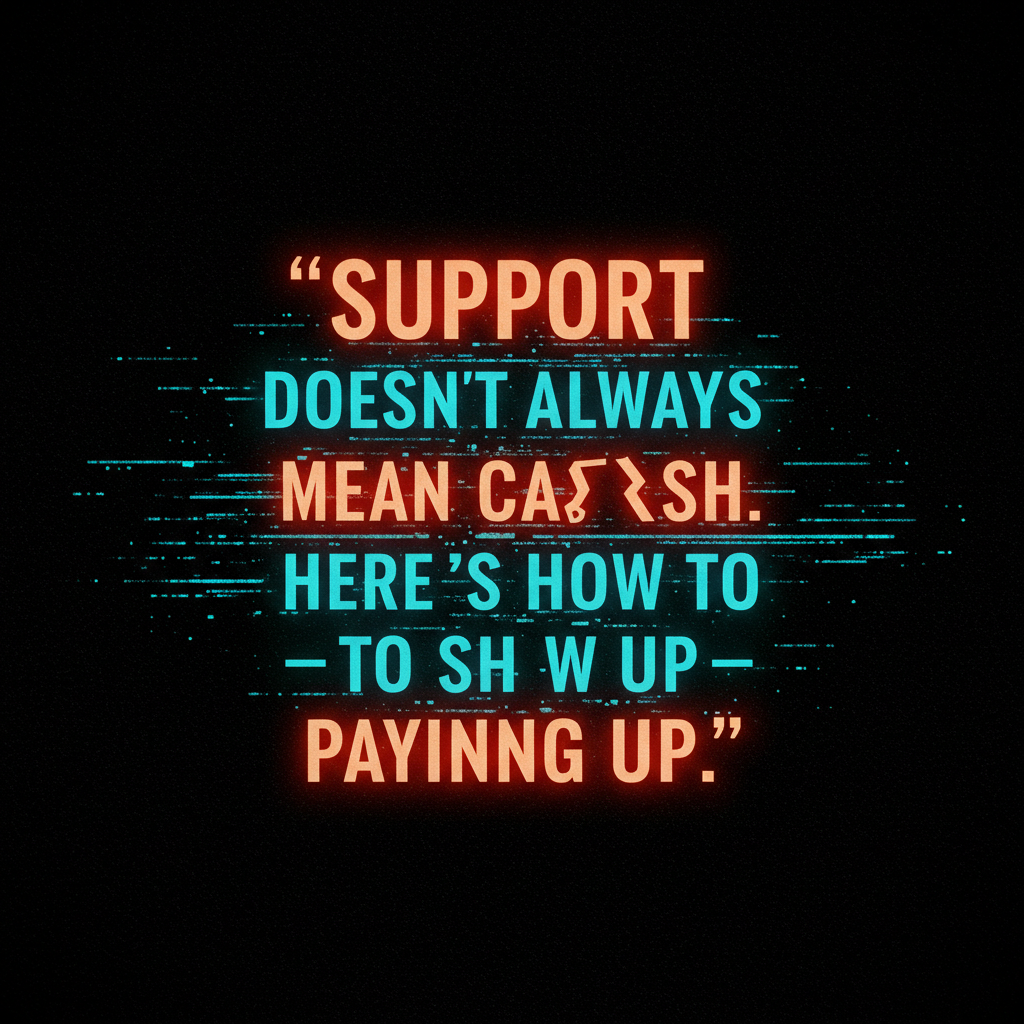
If Sara still wants to be supportive without giving cash, she has options:
-
Offer resources: Share contact information for addiction counselors or financial advisors.
-
Suggest a repayment plan: If she chooses to lend money, it should come with clear terms.
-
Support emotionally, not financially: Sometimes, just being there to talk is enough.
The Verdict: Tough Love Isn’t Villainy

So, is Sara the villain for saying no? Absolutely not.
She’s learned from the past. She’s setting a boundary. And she’s choosing her future over enabling someone else’s destructive patterns.
That’s not selfish—that’s smart.
